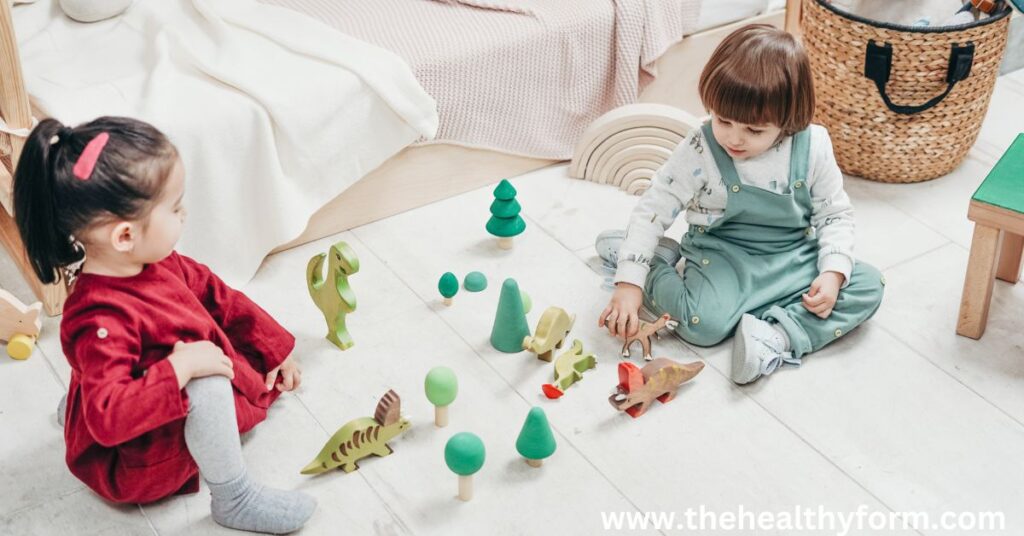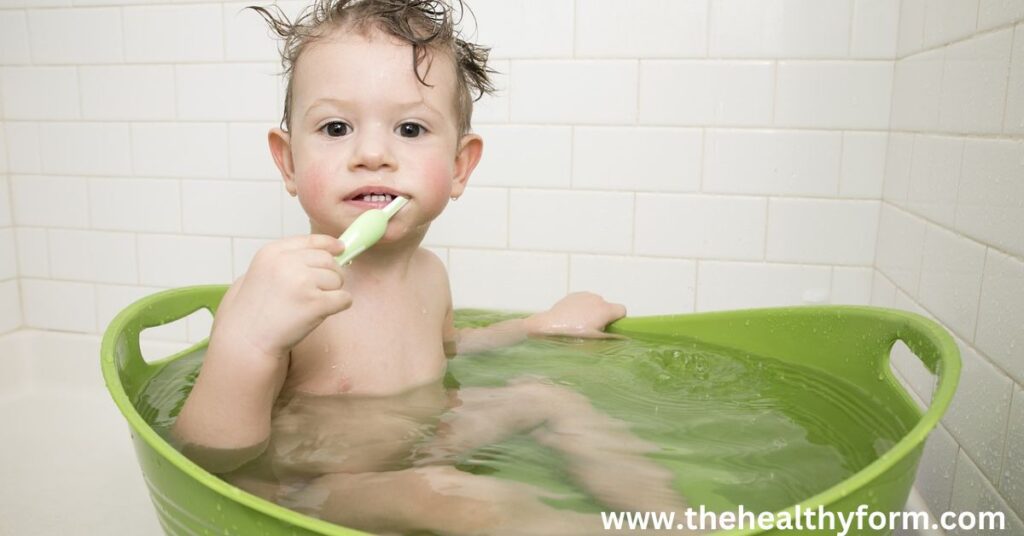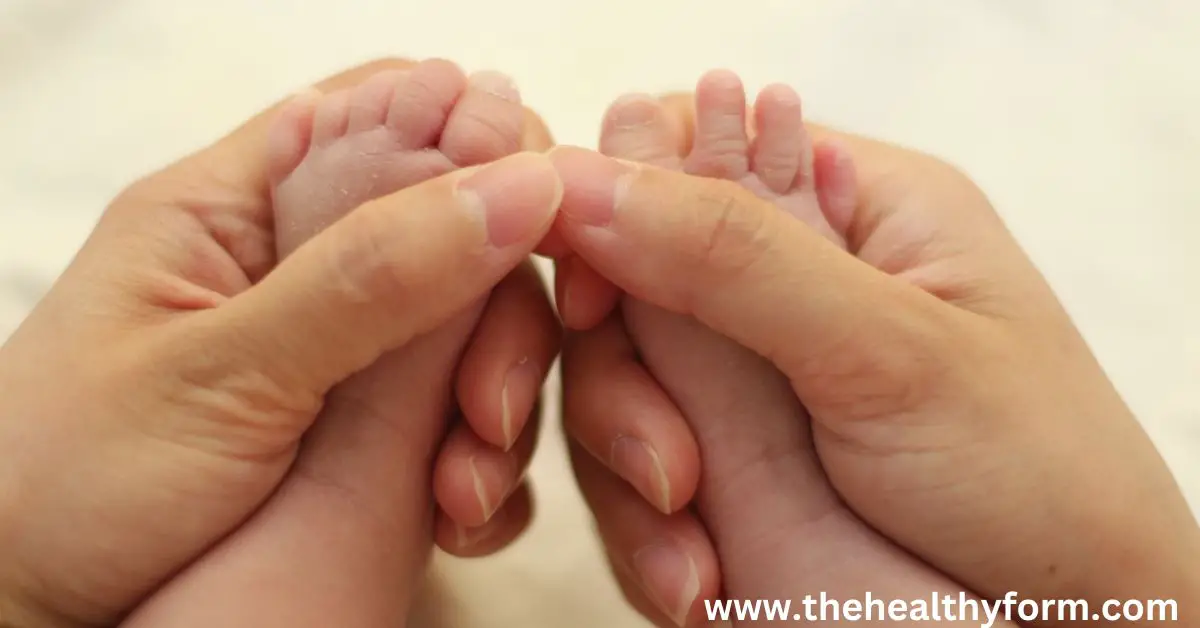Baby Health: The Ultimate Guide to Baby Health
Discover comprehensive tips and advice for ensuring your baby’s overall health and wellness with “The Ultimate Guide to Baby Health.” Learn about baby development, nutrition, and common health concerns. Keep your little one happy and healthy with this must-read guide. Focusing on a child’s well-being is a significant obligation for any parent or guardian. This blog will cover all you want to be familiar with regarding child wellbeing, including average child medical problems, how to focus on an infant, the primary immunizations for children, and how to forestall and recognize medical problems in your little one.

What are Common Baby Health Issues?
The following common medical issues are more likely to affect children:
Children can catch bugs and the virus of the season, just like adults, and they may experience symptoms including a runny nose, a hacking cough, and a fever.
Ear contaminations: Ear illnesses are common in kids and can have negative symptoms like fever, sleepiness, and difficulty caring for oneself.
Diaper rash: Diaper rash is a common skin condition caused by various factors, such as using wet or dirty diapers, having sensitivities, or being bothered by a particular brand of diapers or wipes.
Colic: Colic is a common condition that causes excessive sobbing in children and is typically brought on by stomach-related problems.
Getting teeth: The development of teeth is a common event in a child’s life, yet it can have adverse effects such as slobbering, particularity, and difficulty falling asleep.
What are the Signs of a Healthy Baby?
Many signs can demonstrate that your child is sound, including:
Great weight gain: Infants ought to put on weight reliably over the long haul, and it’s critical to screen their weight gain to guarantee that they are developing and growing appropriately.
Wet and filthy diapers: Children ought to have a few wet and grimy diapers daily, which can connote that they are getting adequate liquids and supplements.
Great craving: Children should have a decent hunger and be keen on eating and drinking.
Typical temperature: A sound child’s internal heat should be between 97.5 and 100.4 degrees Fahrenheit.
Typical relaxing: A sound child should be standard without trouble or clamor.
Typical rest designs: Children have different rest examples and necessities, yet a sound child should have the option to nod off and stay unconscious for reasonable periods.
Great muscle tone: A sound child ought to have excellent muscle tone and have the option to lift their head and kick their legs while lying on their stomach.
Ready and responsive: A solid child should be prepared and receptive to their environmental elements and guardians.
What are the Most Important Vaccines for Babies?
Immunizations are effective for safeguarding your child from severe and hazardous ailments. The Habitats for Infectious Prevention and Counteraction (CDC) suggests a progression of immunizations for infants, including:
Hepatitis B immunization safeguards against hepatitis B, a viral disease that can cause liver harm and malignant growth.
Rotavirus immunization safeguards against rotavirus, a viral disease that can cause severe looseness of the bowels and parchedness in children.
Diphtheria, lockjaw, and pertussis (DTaP) antibody: This immunization safeguards against diphtheria, lockjaw, and pertussis, which are severe and hazardous ailments.
Haemophilus influenzae type b (Hib) immunization safeguards against Hib, a bacterial disease that can cause serious and hazardous sicknesses, including meningitis and pneumonia.
Pneumococcal form immunization (PCV): This immunization safeguards against pneumococcal sickness, a serious bacterial disease that can cause meningitis, pneumonia, and other complex diseases.
Flu (influenza) immunization safeguards against seasonal influenza, a viral disease that can cause difficult sickness, particularly in small kids and more established grown-ups.
Measles, mumps, and rubella (MMR) immunization: This antibody safeguards against measles, mumps, and rubella, which are serious and hazardous diseases.
It is vital to discuss your child’s immunization plan with their medical services supplier and follow their suggestions to guarantee that your child is wholly safeguarded against severe and dangerous sicknesses.
What are the Best Ways to Care for a Baby’s Skin?
A child’s skin is fragile and delicate, and keeping it sound and forestalling bothering is vital. A few ways to focus on a child’s skin include:
Wash your child something like one time per day: Infants needn’t bother to be washed consistently, and over-washing can strip their skin of regular oils and cause aggravation.
Utilize delicate, unscented items: Pick delicate, unscented items for your child’s skin, including cleanser, salve, and diaper cream. Stay away from items that contain scents, colors, and other cruel synthetic substances, as these can disturb your child’s skin.
Keep your child’s skin saturated: Utilize a saturating salve or oil to keep your child’s skin hydrated and forestall dryness.
Safeguard your child’s skin from the sun: Use sunscreen to shield it from its unsafe beams, and dress your child in lightweight, free apparel to keep them cool.
Keep your child’s skin clean: Routinely change diapers and garments to assist with forestalling bothering and contaminations.
Look for clinical consideration assuming that you notice any surprising skin conditions: If you notice any uncommon rashes, knocks, or other skin conditions on your child’s skin, it means quite a bit to look for clinical thoughtfulness regarding deciding the reason and seek fair treatment.

What are the Best Ways to Prevent SIDS in Babies?
If it is obscure, there are steps you can take to diminish the gamble of SIDS and help to guard your child. A few ways to forestall SIDS include:
Please put your child on their back to rest: Infants who rest on their backs are less inclined to foster SIDS than infants who rest on their stomachs.
Utilize a firm, level surface for your child to rest on. A firm, level surface, for example, a lodging or bassinet, is best for your child. Avoid putting your child sleeping on delicate surfaces like a sofa or rocker.
Utilize a protected and proper rest climate: Keep your child’s rest climate liberated from free sheet material, toys, or items that could gamble with suffocation or strangulation. Guarantee the den or bassinet fulfills well-being guidelines and looks excellent.
Abstain from overheating: Overheating can expand the gamble of SIDS, so it’s essential to dress your child in lightweight attire and keep the room agreeable.
Abstain from smoking and hand down cigarette smoke: Openness to smoke can build the gamble of SIDS, so trying not to smoke and handing down cigarette smoke around your baby is significant.
By following these tips, you can assist with diminishing the gamble of SIDS and keep your child protected and solid.
FAQs about Baby Health
Here are some of the most common questions people have about baby health are:
How often should I take my baby to see the pediatrician?
Taking your baby for regular check-ups with the pediatrician every few months during the first year of life and then yearly after that is recommended.
How do I know if my baby is getting enough milk/formula?
Signs that your baby is getting enough milk/formula include regular wet and dirty diapers, weight gain, and contentment after feedings.
How can I tell if my baby is sick?
Signs that your baby may be sick include fever, cough, runny nose, vomiting, diarrhea, lethargy, and irritability.
What should I do if my baby has a fever?
If your baby has a fever, monitoring their temperature and providing comfort measures such as giving them plenty of fluids and dressing them lightly is important. Contact your pediatrician for further advice if the fever is high or persistent.
How can I prevent my baby from getting sick?
You can help prevent your baby from getting sick by practicing good hygiene, such as washing your hands frequently and keeping your baby away from people who are sick. Additionally, ensuring that your baby is up to date on their vaccinations can help prevent illness.
Conclusion:
Focusing on your child’s well-being is a significant obligation, and it’s essential to comprehend everyday child medical problems, the indications of a solid child, the primary immunizations for infants, and how to focus on your child’s skin and forestall SIDS. By following the tips in this aide, you can assist with keeping your child sound and cheerful.





